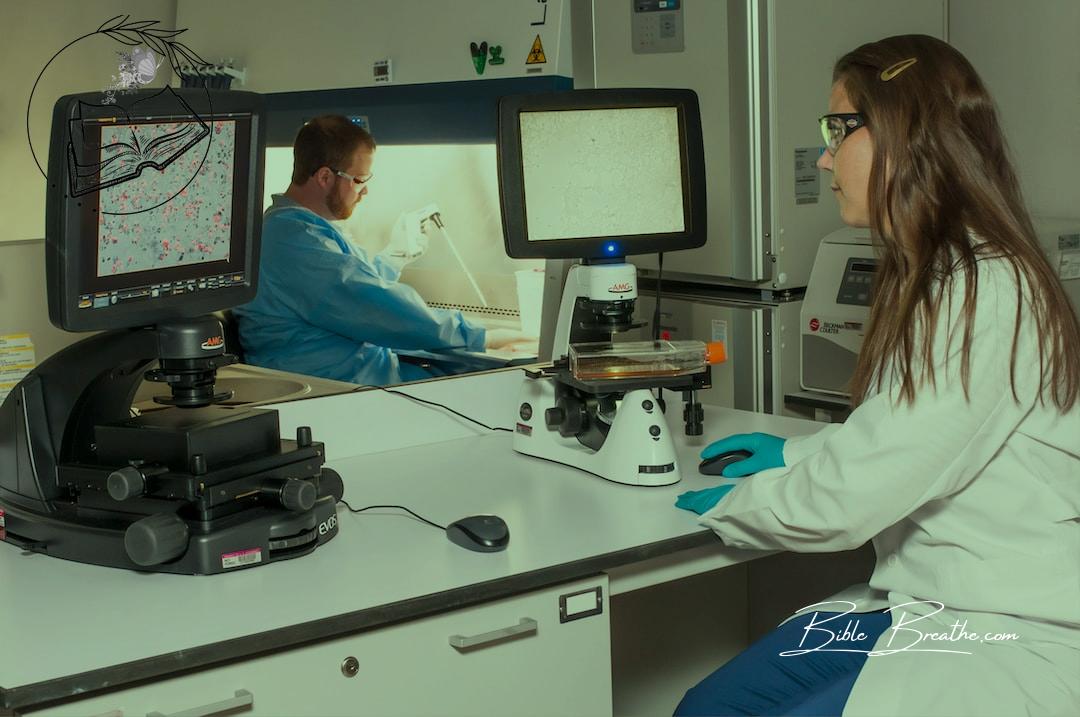2 Corinthians 5:17 – Embracing a Fresh Start
Ever wondered about that verse that shouts, “If anyone’s rockin’ with Christ, guess what? You’re brand spanking new!”
That’s 2 Corinthians 5:17 in the house—a total game-changer.
Picture this: You, a masterpiece in the making, crafted by the Creator.
The old, with all its mess-ups and drama?
That’s ancient history.
New creation in Christ—that’s the vibe we’re talking about!
It’s like hitting reset on life, leaving the old behind, and stepping into a brand-new chapter.
Think of it like a makeover for your soul—biblical transformation at its finest.
You’re not stuck in yesterday’s struggles.
It’s a full-on spiritual glow-up!
So, we’re diving into 2 Corinthians to unpack this radical promise.
The old you?
Gone.
The new you?
Here to stay.
Let’s vibe with the truth of spiritual rebirth, explore what it means to be a new creation in Christ, and soak in the freshness of Christian renewal.
It’s not just a verse; it’s an invite to a life where grace reigns, and faith takes the lead.
Ready for a fresh start?
Let’s roll! 🚀
Key Takeaways
- 2 Corinthians 5:17 speaks to the profound transformation: “Therefore, if anyone is in Christ, he is a new creation. The old has passed away; behold, the new has come.”
- This scripture emphasizes that accepting Christ doesn’t just modify our lives; it radically remakes us, stripping away our past and renewing our spirit.
- In the digital age, where “rebranding” oneself on social platforms is common, this verse offers a divine rebranding, reminding us that our identity is grounded in Christ, not online personas.
- Embracing 2 Corinthians 5:17 means acknowledging that past mistakes, no matter how grievous, don’t define us. Instead, our identity is shaped by God’s love and grace.
- When faced with challenges or moments of self-doubt, revisiting this scripture encourages us to shed our former self-limiting beliefs and step into the fullness of our potential in Christ.
2 Corinthians 5:17: Embracing the New Creation
Hey, amazing souls!
Today, let’s dive into the transformative words of 2 Corinthians 5:17.
This verse is like a burst of fresh air, guiding us through the journey of becoming a new creation in Christ.
Verse of the Day:
“Therefore if any man be in Christ, he is a new creature: old things are passed away; behold, all things are become new.” – 2 Corinthians 5:17, KJV
Basic facts of the verse:
| **Attribute** | **Value** |
|---|---|
| Book | 2 Corinthians |
| Chapter | 5 |
| Verse | 17 |
| Christian Bible part | New Testament |
| KEYWORDs | New creation, Christ, old, new |
| Topics | Spiritual transformation |
| Bible Themes | Renewal, Rebirth |
| People | Followers of Christ |
| Location | Corinth (contextual) |
In the heartbeat of this verse, we find a powerful message of renewal and spiritual rebirth.
As we embrace the truth within these words, let the old fade away, and the new, in Christ, shine brilliantly.
Trust in the Lord’s guidance as you walk this transformative journey of Christian renewal.
2 Corinthians 5:17 KJV Cross References
These are some Bible verses related to 2 Corinthians 5:17:
| **Cross Reference Verse (KJV)** | **Verse** |
|---|---|
| Galatians 6:15 | For in Christ Jesus neither circumcision availeth any thing, nor uncircumcision, but a new creature. |
| Ephesians 4:24 | And that ye put on the new man, which after God is created in righteousness and true holiness. |
| Colossians 3:10 | And have put on the new man, which is renewed in knowledge after the image of him that created him. |
| Romans 6:4 | Therefore we are buried with him by baptism into death: that like as Christ was raised up from the dead by the glory of the Father, even so we also should walk in newness of life. |
| Ephesians 2:10 | For we are his workmanship, created in Christ Jesus unto good works, which God hath before ordained that we should walk in them. |
| Titus 3:5 | Not by works of righteousness which we have done, but according to his mercy he saved us, by the washing of regeneration, and renewing of the Holy Ghost. |
| Romans 8:1 | There is therefore now no condemnation to them which are in Christ Jesus, who walk not after the flesh, but after the Spirit. |
| 1 Corinthians 6:11 | And such were some of you: but ye are washed, but ye are sanctified, but ye are justified in the name of the Lord Jesus, and by the Spirit of our God. |
| 1 Peter 1:23 | Being born again, not of corruptible seed, but of incorruptible, by the word of God, which liveth and abideth forever. |
These verses relate to the theme of being made new in Christ, experiencing a spiritual transformation, and living in accordance with God’s will.
Delving into 2 Corinthians 5:17: A Story of Renewal and Transformation
Photo modified by BibleBreathe.com. Original photo by Raph Howald on Unsplash
2 Corinthians 5:17 declares, “Therefore, if anyone is in Christ, he is a new creation.
The old has passed away; behold, the new has come.” Let’s dive deep into this spiritual rebirth message and grasp its context.
Historical and Cultural Context
The letter of 2 Corinthians was written by the Apostle Paul to the church in Corinth around 55-57 AD.
This was a community mired in cultural diversity, idol worship, and moral ambiguity.
It was like today’s globalized cities, bustling with varied ideologies and beliefs.
Now, picture this: you’ve just traded in your old, beaten-up car for a sleek, efficient machine.
The joy!
The promise of new journeys!
That’s the same exhilaration early Corinthians felt when they embraced the message of Christian renewal.
They were breaking free from a world of rituals, moving into a personal relationship with Jesus.
The new creation in Christ was not just a theological statement for them; it was an everyday lived experience.
As the old has passed away, it symbolized shedding their former identities, just like a butterfly emerging from a cocoon.
Verse Interpretation and Cultural Significance
Back in those times, the idea of being reborn wasn’t just a religious concept; it was revolutionary.
The Corinthians were being called to a Biblical transformation, transcending the societal norms of their time.
Now, isn’t that relatable?
Ever felt the need to hit the “reset” button on life?
This verse is that fresh start.
The promise that no matter where you’re from or what you’ve done, in Christ, there’s always a do-over.
So, when thinking of 2 Corinthians 5:17, remember it’s more than just words.
It’s a testament to the timeless truth that in Christ, every day is an opportunity for a new beginning.
Ready for your renewal?
2 Corinthians 5:17: The Metamorphosis of a Believer
Ever watched a caterpillar morph into a butterfly?
From a creature bound to the earth to one that dances with the wind, this metamorphosis is nothing short of magic.
Well, guess what?
The life of a believer holds a similar, yet even more profound transformation: Biblical transformation.
- “Therefore, if anyone is in Christ,” – This ‘if’ is a game-changer. It’s a pivot point, a transition. This isn’t about a casual association; it’s about dwelling, living, existing within Christ.
- “he is a new creation” – Break out those trumpets because this is the main event. Significance: It’s not just a makeover or a revamped version 2.0. It’s a total reboot, an ultimate spiritual rebirth. Much like our caterpillar friend, one becomes a new creation in Christ, shedding the old and embracing the vibrant, fluttery new.
- “The old has passed away” – Those mistakes, regrets, the should-haves, and could-haves? Gone. History. Archived. It’s like deleting those embarrassing old social media posts that no longer reflect who you are. That’s the old has passed away for you.
- “Behold, the new has come” – Welcome to your new reality. The sequel that outdoes the original. Ever tried those extreme home makeover shows? The big reveal moment? That’s this. Your spirit’s renovation is complete, showcasing the beauty of Christian renewal. Diving into the Greek, “new creation” uses the term “kainos ktisis”, emphasizing an entirely fresh start, untouched by the former things.
2 Corinthians 5 as a whole, paints the picture of our heavenly dwelling, and our transformation as ambassadors for Christ.
5:17?
It’s the cornerstone, the foundation.
Now, tell me, isn’t it time to spread those wings and soar?
The skies await, and so does your newfound freedom in Christ.
2 Corinthians 5:17: Comparative and Literary Analysis
Imagine unboxing a brand-new smartphone.
The old, glitchy one you had is a thing of the past, and in your hand, you hold a fresh, untouched gadget, brimming with potential.
That’s the vibe 2 Corinthians 5:17 gives us about spiritual rebirth.
When you’re in Christ, you’re rebooted, refreshed, and rejuvenated.
But is this idea of a transformative journey only found within the Christian landscape?
Let’s journey through other spiritual territories and see how this concept pans out.
Similarities with other religious texts:
- Start Anew: Both Hinduism’s concept of being born again through karma and the new creation in Christ idea emphasize the cleansing of the past and the emergence of a new self.
- Dying to the Old: Buddhism’s notion of letting go of the old self aligns with the old has passed away ethos in Christianity.
- Inner Rejuvenation: The Quran speaks about those who embrace the faith having light in their hearts, paralleling the Christian renewal sentiment.
Differences with other religious texts:
- Origin of Transformation: While other scriptures might trace biblical transformation to actions or enlightenment, 2 Corinthians roots it in Christ’s sacrificial love.
- Collective vs. Personal Renewal: Some religious teachings emphasize community or collective renewal. In contrast, 2 Corinthians underscores a deep personal shift, an intimate spiritual rebirth.
- Guaranteed Renewal: The assurance in 2 Corinthians 5:17 is solid: In Christ, the old is gone. Not might be gone, not could be gone – it’s a done deal.
If you’ve ever traded in your old car for a shiny new one, you’d get the feeling.
The past is in the rearview, and what lies ahead?
Endless roads of possibilities.
The question is, are you ready to step on the gas, powered by faith, and drive into this renewed existence?
2 Corinthians 5:17: Unpacking the Power of Transformation
Picture this: A caterpillar turning into a butterfly.
The same creature, yet so transformed that it’s unrecognizable.
That’s the flavor of 2 Corinthians 5:17: “Therefore, if anyone is in Christ, the new creation has come: The old has gone, the new is here!” But how do we unwrap this spiritual metamorphosis across faith traditions?
Theological Implications and Interpretations:
- Roman Catholicism: Through the sacrament of baptism, we’re reborn, shedding our old self. It’s the spiritual wardrobe change from old rags to a royal robe.
- Eastern Orthodox: We partake in the divine nature, a transformative union. Like merging with a masterpiece and becoming part of the art.
- Protestantism: Justification by faith. This is the radical U-turn on the road of life, swapping our broken compass for God’s GPS.
- Seventh-day Adventists: Emphasizing sanctification, it’s a daily renewal. Think of it as the phone’s software update, enhancing performance and connection with God.
- Mormonism: A continuous process of perfection. Imagine climbing a spiritual ladder, each rung taking you closer to divine light.
- Jehovah’s Witnesses: It’s about manifesting Christian qualities, discarding worldly influences. Envision outgrowing old shoes, stepping into ones tailored for a purpose.
Broader Biblical Narrative
2 Corinthians 5:17 is the heartbeat of the Gospel.
The Bible is laden with tales of transformations, from Saul to Paul, from fishermen to apostles.
It’s the echo of God’s promise – change is not just possible; it’s a divine guarantee.
Contemporary Relevance and Debates
In a society obsessed with physical makeovers, where does the spiritual rebirth fit?
Is it outdated, or is it the secret formula to a life of purpose and authenticity?
The ink’s still wet on this page, and the conversation’s alive.
Dive in, and witness the transformation unfold! 🦋🙌📜
The Metamorphosis of Faith: 2 Corinthians 5:17
Photo modified by BibleBreathe.com. Original photo by National Cancer Institute on Unsplash
“*Therefore, if anyone is in Christ, he is a new creation.
The old has passed away; behold, the new has come.” 2 Corinthians 5:17 isn’t just a Christian renewal* verse; it’s a testament to the power of transformation, both in spirit and in science.
Scientific Perspectives
Ever observed a caterpillar’s journey?
From a crawling creature, it encapsulates itself into solitude, undergoes a process, and emerges as a butterfly.
This metamorphosis is akin to the new creation in Christ.
It’s a profound transformation, a spiritual rebirth that’s not just skin-deep but resonates from the core.
Science tells us that cells in our bodies are continually dying and regenerating.
If our physical bodies can undergo such a transformation, where the old has passed away, why do we doubt the spiritual metamorphosis that the scripture speaks of?
Let’s dive into neuroscience for a second.
When we form new habits, create memories, or undergo significant life changes, the neural pathways in our brain rearrange.
In essence, we are continuously experiencing a form of Biblical transformation on a cellular level.
Isn’t that fascinating?
Remember when you decided to switch from regular soda to sparkling water?
That choice was more than a mere preference.
It was your brain, consciously deciding to alter its pattern.
Now, magnify that choice a hundredfold, and you have the essence of 2 Corinthians 5:17 – a conscious decision to embrace the Christian renewal, letting the old pass away and become a new creation in Christ.
The science of transformation, whether in butterflies, our bodies, or our brains, aligns seamlessly with the promise of spiritual rebirth in this verse.
In both realms, it’s evident: Change isn’t just inevitable; it’s divinely ordained.
Embracing Your Spiritual Makeover: Unpacking 2 Corinthians 5:17
Ever watched one of those home renovation shows?
You know, where a dated, crumbling house is transformed into a breathtaking marvel?
Well, consider 2 Corinthians 5:17 your divine home makeover episode.
Let’s break it down.
“Therefore, if anyone is in Christ, he is a new creation.
The old has passed away; behold, the new has come.”
The Blueprint of Spiritual Renovation
Imagine carrying a heavy backpack filled with the weight of past mistakes, regrets, and pain.
Now imagine throwing that bag off a cliff.
That’s what this verse means!
The old has passed away, making way for the new creation in Christ.
Your Personal Rebranding Guide:
- Recognize The Designer: Understand that God, the master architect, is at the helm of this transformation. Trust His vision of your spiritual rebirth.
- Demolish The Old: It’s demo day! Eliminate toxic habits, thoughts, and relationships. It’s the essence of “the old has passed away.”
- Build The New: Cultivate habits that align with your Christian renewal. Dive into scripture, surround yourself with positive influences, and let love guide your actions.
- Decorate With Joy: Your new creation deserves to be adorned with joy, peace, and all the fruits of the spirit.
- House Tour: Show off your new spiritual home. Share your journey, be a beacon of hope, and allow others to see the beauty of a life transformed by Christ.
- Regular Maintenance: Regularly revisit the scripture, attend fellowship, and ensure that the old doesn’t sneak back in.
Think about the joy you feel seeing the transformation of a dilapidated house into a beautiful abode.
Now, isn’t the joy a hundredfold when it’s your spirit undergoing a similar Biblical transformation?
So, here’s a question: Are you ready for your spiritual renovation?
Are you prepared to embrace the fresh coat of paint that God offers through Christian renewal?
Remember, no building is too old, no soul too worn, for God’s makeover magic.
The blueprint is in your hand; it’s time to start building!
2 Corinthians 5:17: From Old Patterns to Renewed Purpose
Photo modified by BibleBreathe.com. Original photo by Roman Bilik 💙💛 on Unsplash
Envision a caterpillar: bound by its many legs, limited in mobility, restricted to the ground.
Then, a transformation occurs, a metamorphosis, and it becomes a butterfly, taking flight with newfound freedom.
This is the power of spiritual rebirth, and the essence of 2 Corinthians 5:17: “Therefore, if anyone is in Christ, he is a new creation.
The old has passed away; behold, the new has come.”
Exegetical Questions and Critical Thinking for Engagement:
Amidst life’s hustle and whirlwinds, let’s pause, reflect, and embark on an introspective journey:
- What does being a “new creation in Christ” mean to you personally and how does it shape your identity?
- How does understanding that the “old has passed away” empower you to let go of past mistakes and regrets?
- In what ways does the concept of “biblical transformation” challenge or reinforce your current spiritual practices?
- When considering the world around you, how does this verse inspire a Christian renewal perspective, especially when facing societal pressures?
Imagine:
- A college student, drowning in past mistakes and seeking a fresh start. How can this verse serve as his anchor?
- A middle-aged woman, trapped in a repetitive, unfulfilling job. How might this scripture pave a pathway to newfound purpose and passion?
- A former convict, released and reentering society. How does the promise of becoming a new creation in Christ restore hope and guide his steps forward?
Reflect on these real-world headlines:
- Global initiative launched to replant billions of trees worldwide.
- With the planet in renewal, how does 2 Corinthians 5:17 remind us of our individual and collective role in spiritual and physical restoration?
- Former tech executive leaves high-paying job to serve underprivileged communities.
- As someone breaks free from their old life, how can the essence of “old has passed away” inspire more of us to transform and serve?
Life is not static; it’s ever-evolving.
Just as seasons change, so can we.
In Christ, there’s a perpetual promise of rebirth and rejuvenation.
The past is a chapter closed, and a brand-new story awaits.
Are you ready to embrace your wings and soar into your renewed purpose?
The invitation is open.
The choice is yours.
Frequently Asked Questions (FAQs) About 2 Corinthians 5:17
In 2 Corinthians 5:17, what does it mean when it says, “Therefore, if anyone is in Christ, the new creation has come: The old has gone, the new is here!”?
Matthew 11:29 invites believers to embrace Jesus’ teachings and character.
The metaphor of the yoke symbolizes a shared life journey with Jesus, promising rest for those who adopt His gentle and humble spirit.
This verse encourages a transformative relationship with Christ that brings inner peace and spiritual rest.
Can you elaborate on the transformative nature of being a new creation in Christ as mentioned in 2 Corinthians 5:17?
2 Corinthians 5:17 highlights the transformative nature of salvation.
Practical application involves embracing identity in Christ.
Actively discard old patterns of behavior and align actions with Christ’s teachings.
Nurture spiritual growth through prayer, study, and community, allowing the Holy Spirit to continually shape the new creation in Christ.
Are there other Bible verses that complement or provide additional insights into the concept of becoming a new creation in Christ?
2 Corinthians 5:17 aligns with this concept, stating that in Christ, believers are a new creation.
Ephesians 4:22-24 encourages putting on the new self created after the likeness of God.
These verses complement the idea of transformation in Christ.
How can individuals practically experience and embrace the newness of life described in 2 Corinthians 5:17?
Practical embrace of the newness of life in 2 Corinthians 5:17 involves intentional choices.
It includes surrendering old habits to God, cultivating a Christ-centered mindset, and actively participating in spiritual disciplines like prayer and studying Scripture.
Embracing this new life entails aligning actions with the transformed identity in Christ, fostering a continuous journey of spiritual growth and renewal.
Can you share stories or examples from the Bible that illustrate the process of becoming a new creation in Christ, as discussed in 2 Corinthians 5:17?
The story of Zacchaeus in Luke 19:1-10 demonstrates transformation as he became a new creation after encountering Jesus.
Saul’s conversion to Paul (Acts 9) also illustrates a radical change in becoming a new creation.
These examples highlight the transformative power of encountering Christ and aligning with His redemptive work, leading to a renewed and changed life as described in 2 Corinthians 5:17.




